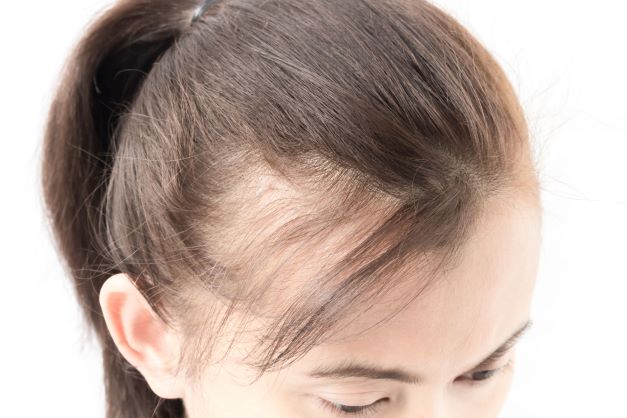Preventive Healthcare
Wheezing: What It Is, Causes, Diagnosis And Treatment

Wheezing is a whistling or whistling sound heard during respiration. It is caused by constricted airways. These make it difficult for air to enter and exit the lungs.
Now, you may be wondering what causes wheezing. Well, there are quite a few potential wheezing causes. These include asthma, chronic obstructive pulmonary disease (COPD), allergies and sinus infections, bronchitis and pneumonia, heart failure, and gastroesophageal reflux disease (GERD).
It's also worth mentioning that some risk factors might raise a person's chances of wheezing. These include smoking, being exposed to air pollution, and having a family history of respiratory difficulties.
Causes of Wheezing
As said above, there are several reasons for wheezing. We will now look more closely at some of the most prevalent causes of wheezing.
Asthma
The first issue is asthma. Asthma is a chronic lung disease. It causes the airways to become inflammatory and constricted. This may cause wheezing and other symptoms including shortness of breath, chest tightness, and coughing.
Chronic Obstructive Pulmonary Disease (COPD)
Chronic obstructive pulmonary disease (COPD) is another prevalent cause of wheezing. COPD is a collection of lung disorders. They make breathing difficult. Long-term exposure to irritants such as cigarette smoke is usually the causative factor. It may cause wheezing, coughing, and shortness of breath.
Allergies and Sinus Infections
Wheezing may also be caused by allergies or sinus infections. When someone has an allergic response, their airways become irritated and restricted. This results in wheezing. Wheezing may be caused by sinus infections. This is because the inflammation and mucus accumulation can restrict the airways.
Bronchitis And Pneumonia
Wheezing may also be caused by bronchitis or pneumonia. Bronchitis is an inflammation of the bronchial tubes. Pneumonia is a lung infection. Both of these illnesses may result in wheezing, as well as coughing, chest discomfort, and fever.
Heart Failure and Gastroesophageal Reflux Disease (GERD)
At last, wheezing may be caused by heart failure and gastroesophageal reflux disease (GERD). When the heart is unable to pump enough blood to the body, it may cause fluid to build up in the lungs, causing wheezing. GERD is a disorder in which stomach acid runs back into the oesophagus. This causes irritation, inflammation, and wheezing in the lungs.
Diagnosis of Wheezing
Physical Examination
A physical examination is often used to diagnose wheezing. The doctor will use a stethoscope to listen to your chest and back for wheezing noises. In addition, they may inquire about your symptoms, medical history, and any risk factors.
Lung Function Tests
Lung function tests, such as spirometry, may also be performed. These are to assess your lung capacity and ability to breathe. These tests may help confirm asthma or COPD diagnosis.
Chest X-Rays or CT Scans
Chest X-rays or CT scans may be conducted to look for any abnormalities in the lungs or chest that might be the source of the wheezing.
Allergy Tests
Allergy tests may be conducted to evaluate if the wheezing is caused by an allergic response. Skin prick testing or blood tests to screen for particular allergies are examples of this.
Gastroesophageal Reflux Disease (GERD) test
Finally, testing for gastroesophageal reflux disease (GERD) may be conducted. This is because this condition may sometimes induce wheezing as a symptom. A pH test to evaluate the acidity in the patient's oesophagus or an endoscopy to see the interior of the patient's oesophagus and stomach may be performed.
It should be noted that numerous tests may be required to ascertain the cause of wheezing. Diagnosis might be difficult at times.
Treatment of Wheezing
Depending on the underlying reason, there are numerous wheezing treatments available.
Bronchodilators
Bronchodilators are drugs. They relax the muscles in the airways, making breathing easier. These might be inhalers or pills. Inhalers are used to treat acute wheezing attacks. Tablets may be used to treat more chronic symptoms.
Corticosteroids
These medications are used to minimise airway inflammation and help control wheezing. They are usually in the form of an inhaler, but for more severe illnesses, they may also be given orally. These drugs are often only used for short-term relief since long-term usage may result in undesirable side effects.
Antihistamines
Antihistamines, such as Benadryl, may be used to treat allergy symptoms that induce or aggravate wheezing. These medications operate by inhibiting histamine, a molecule produced during an allergic response.
Antibiotics
If the wheezing is caused by a bacterial illness, such as pneumonia, antibiotics may be recommended. These medications operate by destroying the germs that cause the illness.
It is crucial to highlight that antibiotics are ineffective against viral infections and should only be taken if a doctor has recommended them. Furthermore, even if the symptoms improve, it is critical to complete the whole course of antibiotics as advised.
Lifestyle Changes
In addition to the medicines indicated above, lifestyle changes may be effective in reducing wheezing. Avoiding triggers like dust, pollen, or smoking may help minimize the frequency of wheezing episodes.
Additionally, maintaining a good diet, exercising frequently, and getting enough rest may assist improve overall respiratory health and alleviate wheezing symptoms. Additionally, quitting smoking may have a significant favourable influence on respiratory health.
You should also make every effort to decrease stress since stress has been found to aggravate wheezing symptoms.
Taking pauses during the day, participating in soothing activities like yoga or meditation, and communicating with a mental health professional are all stress-reduction tactics. Generally, taking action to prevent wheezing may benefit your overall health and well-being.
Conclusion
Wheezing is a frequent symptom. It may be caused by asthma, COPD, allergies, sinus infections, bronchitis, pneumonia, heart failure, and GERD. A comprehensive diagnosis may include a physical examination, lung function tests, imaging, and allergy testing.
Treatment options include bronchodilators, corticosteroids, antihistamines, and antibiotics. Lifestyle changes such as avoiding triggers, stopping smoking, and maintaining a healthy diet and exercise regimen may also help in prevention.
If the wheezing persists or is accompanied by other symptoms such as trouble breathing or chest discomfort, it is critical to get medical assistance.










































